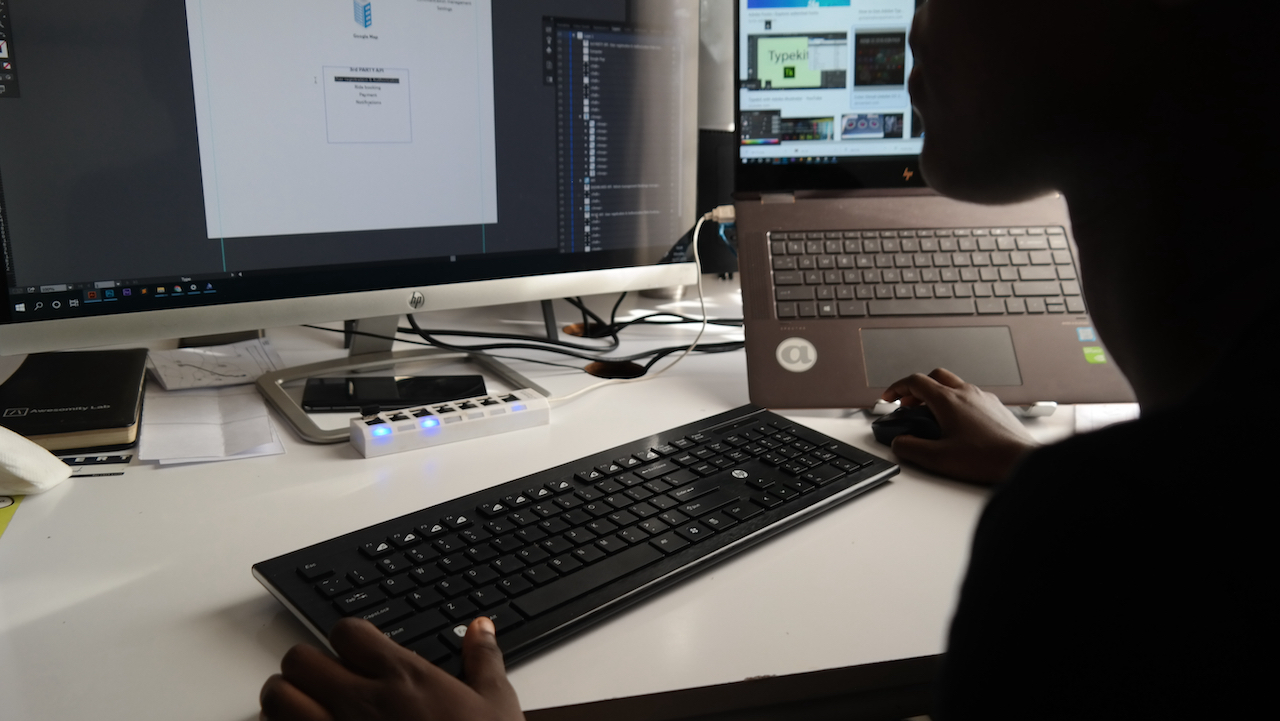HANS STOISSER
Code of Africa – new forms of collaboration

“Our heart beats for building a business bridge between tech talents in East Africa and Europe …”, this is how the first part of the Business Mission reads. Kenyan, Rwandan and German software companies work closely together. Their IT specialists meet daily online for “Standups” on MS-Teams or Zoom. Together they work for customers in Europe, the US, or anywhere else in the world.
What has become increasingly normal for the general public since Corona – virtual online collaboration – has been at the core of the business model of CODE OF AFRICA since its beginning in 2018. I had the privilege to be one of the co-founders.
“The world is moving closer together,” says managing director Anja Schlösser. “Since Corona, virtual collaboration is finally the most normal thing in the world! Almost no CO2 footprint, effective time management and above all, supply meets demand!” By this, she means that the large surplus demand for IT specialists in Europe encounters a qualified supply in East African countries. All in the same time zone and in the same (English) language.
Working principles
After almost two years in business, now the next step has been consistently taken. Online collaboration – just like any other form of collaboration – needs jointly recognised guidelines. Based on its concrete experiences, CODE OF AFRICA has written down how its online collaboration works and what the company aims for (see below).
- Growing together because all partners believe in the same VALUES.
- To delight the customers in the first place is the PURPOSE of the work. Making money comes as a result.
- Valuing management with self-organised teams and networks creates an effective STRUCTURE.
- Test-and-learn in continuous feedback loops is a basic principle of IMPLEMENTATION.
- Interacting at eye level, across company boundaries, is at the very heart of COMMUNICATION.
Principles embody ideas. Well reflected and internalised, they are a guideline that shapes the actions of individuals. A start-up like CODE OF AFRICA, which started small, naturally finds it much easier to “live” such ideas and guidelines. Especially when the principles have been extracted and formulated from practice, as here.
Age of a new collaboration
Whatever the term used to describe this kind of collaboration – “agile”, “people-centric”, “humanistic” – the principles provide a basis for what new forms of work and collaboration can look like in the digital age.
And by the way, they are also a thorough basis for a modern collaboration between Africa and Europe.
With this, the collaboration generated by CODE OF AFRICA more than fulfils the second part of CODE OF AFRICA’s business mission: ” … by contributing to job creation, education and a positive perception of Africa in Europe“.
Working Principles CODE OF AFRICA
1. VALUES: We orient our collaborations towards values that make Code of Africa and its stakeholders grow
We are looking at a shift from a single-minded preoccupation with efficiency and predictability to embracing values that will grow Code of Africa and the accompanying ecosystems, particularly a culture of empathy, integrity, trust, transparency, continuous improvement and sustainability.
2. PURPOSE: We delight our customers and create values for all our stakeholders
Our business mission and value proposition determine our work. The starting point is not to make a profit, but to delight our customers. This is what we do profitably, and it allows us to create values for all our stakeholders.
3. STRUCTURE: We build on valuing management with self-organised teams and networks
We aim for a world where the manager’s role becomes that of enabling collaboration among diverse self-organizing teams, networks and ecosystems. By doing so, we can unleash the talent and creativity needed to deliver better, faster, more affordable, flexible, lighter, more convenient and more personalized services.
4. IMPLEMENTATION: Test and learn instead of plan and implement
In our work with our customers we TOGETHER focus on purpose and performance. We operate in continuous feedback loops in order to constantly adapt our value creation and solution finding methods. By doing so we strive to create an environment of constant learning and improvement, strengthening our market position.
5. COMMUNICATION: We communicate at eye level, across company boundaries
It is our strength to act as a translator between different cultures. We do not give top-down directives but aim for multi-directional conversations. We want to inspire people to work together on common goals, across organizational and company boundaries, in related networks and ecosystems.
For those who are interested in more about African-European collaboration:



